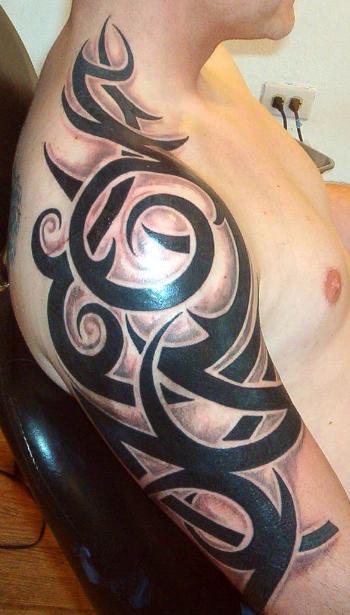Tribal tattoos has a history as far back as tattooing itself, these types of images have gained a huge increase in general popularity, beginning in the early 1990s. Traditional tribal tattoos was and is done for many reasons. Some of the most common reasons for tribal tattoos include rites of passage, social status, or even simple family identification. Some tribes also believe tattoos hold magical or spiritual significance.
One common thread throughout both traditional and modern tribal tattoos is the use of black ink and bold designs. While modern tattooing equipment and inks have made possible the finest and most detailed of body art, traditional tribal tattoo artists certainly had no such equipment available. Therefore, every tribe had its own method of administering their tattoos, some being more painstaking and/or painful than others.
Tattoos are often an expression to oneself, a distinction or as a way of letting people know something important about their life. Some tattoos are done as a form of symbol which can indicate that you are part of a certain tribe or organization. Getting a tattoo can also be part of a ritual which is significant and an example of this are tribes in North America especially with Indians. Rituals that signifies a personal achievement, coming of age, etc.
Tribal tattoos have their roots in ritual, symbolism and spirituality, but most modern types of this artwork are done more for aesthetic reasons. The images have a common appeal, and because the freedom of design is so open, it's not necessary to get actual traditional tribal imagery tattooed to have the impact of a tribal design. Though the artwork may have a personal significance to the person receiving it, it's more likely due to personal experience rather than any actual symbolism or tribal affiliation.








